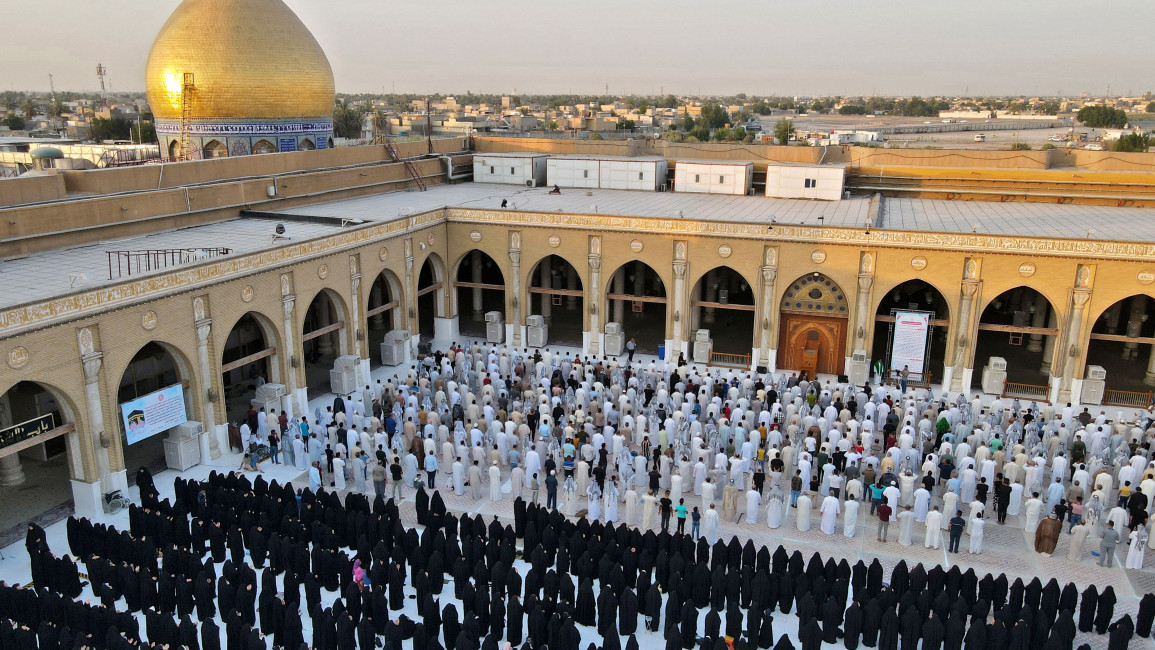Iraq's Sunni and Shia Muslims will celebrate Eid Al-Adha on different days
The religious authorities of Iraq's Sunni and Shiite Muslim communities on Sunday announced two different dates for this year's Eid Al-Adha celebrations.
The Diwan of Sunni Endowments identified 19 June as the first day of Dhul-Hijjah month, making 28 June the first day of Eid al-Adha.
The office of Grand Ayatollah Ali Al-Sistani, the top religious authority for Iraq's Shia Muslims who make up the biggest religious grouping in the country, named 20 June as the first day of the month of Dhul-Hijjah – meaning the country's Shia Muslims will celebrate Eid Al-Adha a day later than their Sunni compatriots.
"Monday will be the complement of Dhu al-Qi'dah month... Tuesday June 20 will be the first day of Zul Hijjah month for the year of 1444," the office of Al-Sistani said in a statement.
اعلان ثبوت الرؤية الشرعية#ديوان_الوقف_السني pic.twitter.com/wGO2iIHI5x
— ديوان الوقف السني العراقي (@SunniaffairsIq) June 18, 2023
Islam uses the moon as the basis of its calendar with sightings of a new moon crescent in the sky or through calculations determining the dates of religious festivals and months.
As per the teachings of the Prophet Muhammad, the sighting of the new moon marks the start of a new month.
The difference in these sightings between Sunni and Shia Muslims in Iraq – and further afield – is said to be beyond disagreement on when a new moon is sighted or mathematical calculations, but instead reflect political divisions.
Eid Al-Adha ("Feast of Sacrifice") is celebrated by Muslims worldwide two months and 10 days after Eid al-Fitr, which marks the end of Ramadan.
Communal prayers, visits to neighbours and relatives, and, for many, the slaughter of livestock and donations of meat to the poor are common acts of Muslims during Eid Al-Adha.
The origin of Eid stems from the story of when Prophet Abraham saw in his dream that God ordered him to slaughter his son, Ismail.
The story is mentioned in the Quran, the holy book of the Muslims.
When Abraham was about to sacrifice his son, the Angel Gabriel was sent by God with a huge ram to sacrifice instead.
Sunnis – the vast majority of Muslims – also celebrate Eid Al-Adha and other festivals on different days, for reasons again put down to political differences.



